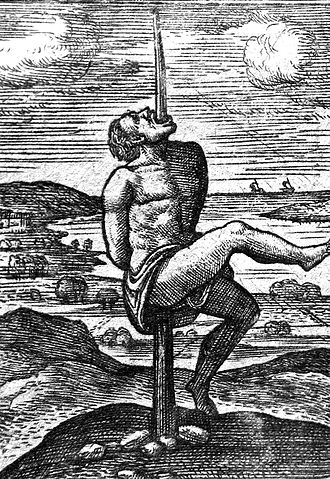At WSJ, "As Russian Invasion of Ukraine Widens, the West’s Options Shrink":
Seven days into Russia’s invasion of Ukraine, the U.S. and its North Atlantic Treaty Organization allies are coming under increasing pressure to do more to help Ukraine, even as they face diminishing options for doing so. As Russia continues its push to capture urban areas, one of the more drastic options discussed publicly has been a no-fly zone, which would stop Russian aircraft from launching strikes over Ukraine, eliminating a key military tactic. But the idea has been dismissed by the U.S. and NATO countries. “That is in many ways for many people, the unspoken question. Why not just engage militarily? But that’s not something any NATO member is thinking of doing. And there’s a reason for that, which is in order to have a no-fly zone above Ukraine, in the current circumstances, you would have to take decisions to shoot down Russian jets,” British Prime Minister Boris Johnson said Wednesday. “And that’s not something that any Western country is contemplating.” British officials say that while the no-fly zone has been discussed at senior levels, it isn’t a realistic option given the risks of it provoking a direct conflict with Moscow. Creating a continuous, effective no-fly zone over Ukraine, particularly with several NATO nations, would require several hundred planes, not only to uphold the no-fly zone but to support those aircraft maintaining that no-fly zone. In addition, air forces across multiple nations would have to coordinate. And, should Russia attack NATO-member aircraft, that would be seen as an attack on the 30-member alliance. The British government has said it would instead continue to impose more sanctions on Russian individuals, deliver more weapons to Ukraine and make it easier for refugees fleeing the conflict to settle in the U.K. Sanctions, however, won’t have an immediate effect on the battlefield, Western leaders have acknowledged. “This is going to take time,” President Biden said last week as the U.S. began rolling out punitive financial measures that included cutting off some of Russia’s largest banks from the global financial system. However, officials hope that the unprecedented economic hit will bite the Russian economy rapidly, meaning that as the bombs fall on Kyiv, there will be Russian bank runs and Russian businesses collapsing, showing real-world consequences for Russian President Vladimir Putin. A no-fly zone could be part of an eventual peace agreement, one official said. While NATO members have rejected any notion of direct intervention, they have recently increased their defensive presence, with more than 100 jets now at high alert, operating from 30 locations, more than 120 ships on patrol from the Baltic Sea to the Mediterranean Sea, and thousands more troops deployed to NATO’s east. Mr. Putin’s reference to putting his nation’s nuclear-weapons arsenal on alert has also raised concerns among NATO allies about the potential risks of military involvement. There appears to be no consensus yet as to how the West would react to such an escalation, and one European diplomat suggested the nuclear-posture change was a bid to deflect attention away from the conduct of the war. But if Mr. Putin did follow through with his threat, the nuclear-armed NATO members would put their nuclear arsenal on alert, officials said. One NATO official speculated that Western countries could in such a scenario attempt to send more substantial support to Ukraine by private channels, without specifying what that would entail. A European official said this had already been discussed in government circles. “The situation is escalating and Putin seems keen for it to escalate, he is following a logic of war,” the European official said. On Friday, foreign ministers from NATO member states will hold emergency talks about Ukraine. Among the issues they will discuss, U.S. officials said, is how the alliance can support Ukraine, even though it is a non-NATO member. But officials conceded there aren’t many options. Even the Western weapons shipments now streaming into Ukraine via Poland could lead to an escalation of hostilities between Russia and NATO, some officials fear, and the alliance members are divided on how much military assistance to provide. Over the weekend, the EU’s top diplomat, Josep Borrell, said the bloc would send jet fighters to Ukraine, and, for the first time, finance member countries’ deliveries of offensive weapons to Kyiv. Several officials familiar with the discussions said that there was never any agreement on such a move, which had merely been discussed among foreign ministers of the bloc. On Tuesday, officials in several countries that have the types of aircraft Ukrainian pilots are trained to fly said they were unwilling to provide them despite Mr. Borrell’s comment. NATO and European officials said that there was a great concern about Russia attacking the supply lines that channel weapons and other materiel to Ukraine via Poland. The positioning of troops in Belarus as well as around Kyiv suggested that Russia was planning to cut off the western part of the country and end the shipments of arms and humanitarian aid to Ukraine. NATO members appear to accept that regardless of what measures they take, Mr. Putin appears set on widening the conflict...






